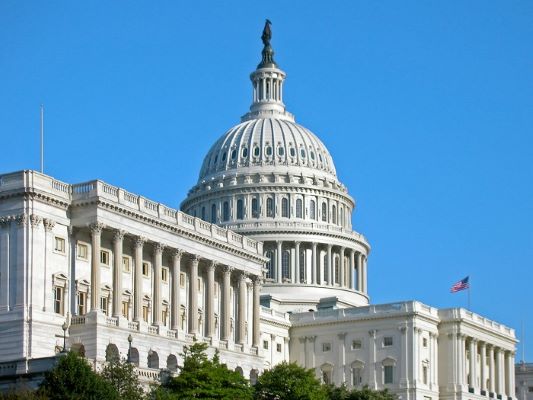Inside D.C.
House-Trump USMCA agreement in hand

Providing the first real evidence the House can walk and chew gum at the same time when it comes to impeachment compared to the rest of the chamber schedule, House Speaker Nancy Pelosi (D, CA) this week hustled from one press conference announcing the Judiciary Committee will file two articles of impeachment against President Trump – abuse of power, obstruction of Congress – to a second press gaggle to trumpet her Democrats will bless a House-White House deal to send the U.S.-Mexico-Canada Agreement (USMCA) to the floor for final ratification as early as next week.
Impeachment articles represent the penultimate step in the process; the final action will be a floor vote just before the House adjourns December 20 for the holidays and the year. There were no surprises at this event, just the same solemnity, rhetoric and predictable Trump reaction – “it’s a witch hunt!” – that have been the hallmarks of the process from the start.
USMCA supporters aren’t yet doing happy dances just, but they are breathing a lot easier. The Democrat final embrace of White House concessions on labor reform/enforcement, Rx drug pricing and environmental protections now hinges on final administration legislative language to “implement” the treaty, language that will be circulated to all House members this week. The House Ways & Means Committee and Senate Finance Committee will mark up that legislation – a fairly quick process – and both chambers will vote. Again, the target for action is December 20, when USMCA will “sail to approval,” said one trade insider
Trump tweeted, “Looking like very good Democrat support for USMCA. That would be great for our Country!” The official response came from Agriculture Secretary Sonny Perdue, who said, “USMCA is a big win for American workers and the economy, especially for our farmers and ranchers. The agreement improves virtually every component of the old NAFTA, and the agriculture industry stands to gain significantly. While I am very encouraged by today’s breakthrough, we must not lose sight – the House and Senate need to work diligently to pass USMCA by Christmas.”
Pelosi in announcing the USMCA agreement was flanked by eight of the nine members of her USMCA working group led by Rep. Richard Neal (D, MA), chair of the Ways & Means panel. She averred the final House-White House deal is not only “better than NAFTA1,” but is a “victory for American workers,” and thanks to Democrat tenacity, the deal is “infinitely better than what was initially proposed by the administration.” Neal said the negotiations between Democrats and U.S. Special Trade Representative (USTR) Robert Lighthizer were loud and contentious, citing several times either he or Lighthizer hung up on the other during negotiations.
For himself, Lighthizer got on an airplane and headed south where he’s set to sign an updated version of the pact December 10, joined in Mexico City by Mexican and Canadian officials.
A major hurdle to congressional approval of the modified treaty was overcome with the announcement by AFL-CIO President Richard Trumka that his union will support the House-White House USMCA détente. Progressive Democrats can now vote “aye” on the deal without fear of union ire, and labor’s support renders moot just about any other organizational blowback on the deal.
And while Pelosi and Neal talked about their reinvention of USMCA – each of them thanking Trumpka and the AFL-CIO numerous times – the GOP side of the Ways & Means Committee wasted no time in putting out its own version of just how a deal was finally reached. Ranking panel member Rep. Kevin Brady (R, TX) declared in bold face headlines that the “USMCA deal denies Democrat demands; maintains key Republican priorities for…workers, manufacturers and farmers,” and “Republicans stopped Democrats from distorting USMCA with special interest benefits: Republican priorities maintained in final deal.”
After all the political rhetoric is over, the bottom line is a $1-trillion continental trade agreement is preserved, a treaty which provides agriculture $50 billion a year in non-tariff, cross-border trade. USMCA is expected to “spur” $68 billion in new tripartite economic activity, creating 176,000 new jobs over time.
Neither political party could afford to ignore that economic reality going into the 2020 election when control of Congress and the White House is up for grabs.

Add Comment